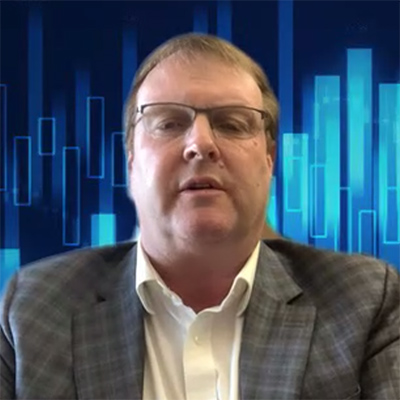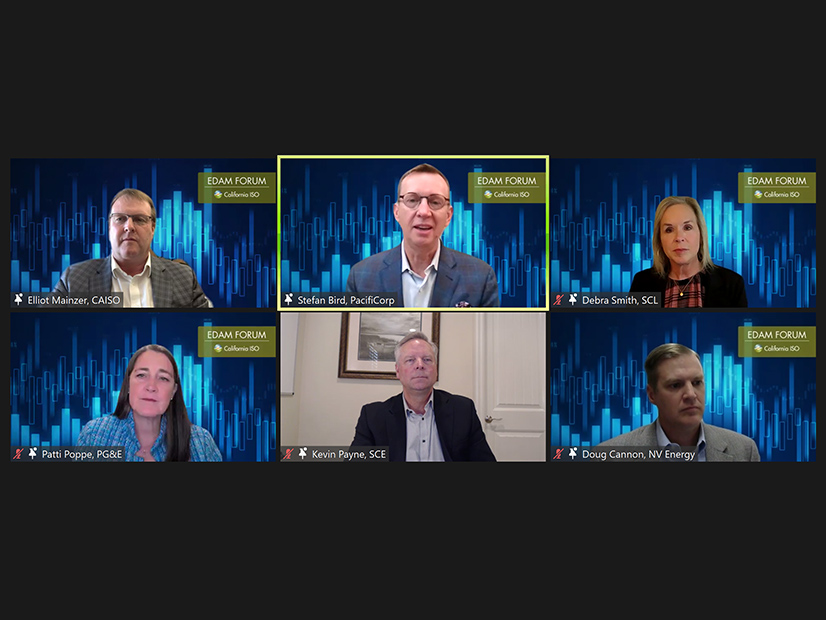CAISO ramped up efforts Wednesday to expand its Western Energy Imbalance Market from a real-time to a day-ahead market in a virtual forum that brought together utility CEOs, regulators and industry leaders to discuss the plan.
The ISO paused its proposal for an extended day-ahead market (EDAM) after the rolling blackouts and strained grid conditions in August and September 2020. Now back in play, the EDAM faces a more crowded field of potential competitors trying to coordinate pieces of the West’s energy markets or to establish a Western RTO.
“This is an extraordinarily dynamic, challenging and exciting time in the West,” CAISO CEO Elliot Mainzer said as he opened the session with 400 attendees. “Everyone seems to be talking about and working with a sense of real urgency towards greater regional coordination and market integration.”
Recent efforts include the Northwest Power Pool’s work to form the Western Resource Adequacy Program, SPP’s creation of the Western Energy Imbalance Service and its pitch to lead a Western RTO, and the formation of a Western Markets Exploratory Group (WMEG) to consider coordinated market services such as transmission expansion and day-ahead energy sales. (See Western Utilities to Explore Market Options.)
FERC Chairman Richard Glick has called for establishment of one or more Western RTOs, and Nevada and Colorado passed laws this year ordering their transmission-owning utilities to join an RTO by 2030.

“I have never seen or felt a greater sense of interest and urgency on this topic,” Mainzer said.
CAISO hopes to play a central role in Western regionalization with the EDAM.
The steady expansion of the Western Energy Imbalance Market (WEIM) since its founding in 2014 has demonstrated the value of a real-time market in the West, Mainzer said. The WEIM has generated more than $1.4 billion in benefits for its 15 participants. Six more entities plan to join by 2023, spreading the market’s footprint across nearly all Western states and encompassing 84% of electricity load in the West.
“The growth of the EIM has provided tangible evidence that the West does best when we optimize transmission and resource diversity across the widest geographical footprint possible,” Mainzer said. “And given the level of interest and desire for actionable progress towards a fully integrated market or RTO in the West, we are now prepared and excited to build on the foundation of the EIM and reinitiate our extended day-ahead market stakeholder initiative.”
‘Next Major Step’
Mainzer moderated a panel of CEOs from some of the West’s largest utilities, most of whom praised the EDAM proposal.
“For us at PacifiCorp, the extended day ahead market builds on the solid foundation of the Energy Imbalance Market,” said Stefan Bird, CEO of PacifiCorp subsidiary Pacific Power. Participating in the WEIM has saved PacifiCorp $310 million and reduced its carbon output by 5 million metric tons, he said.
“While the EIM has been hugely successful, it only scratches the surface of what’s possible,” Bird said. “As we now look to the next incremental step in our market partnership with the California ISO and other participants, we see the extended day-ahead market as the next big opportunity to increase customer benefits by optimizing an even larger volume of energy transaction and fuel commitment decisions that occur in the day-ahead and real-time operations.”
The West’s diversity of solar, hydropower and geothermal resources, along with time differences in the region’s vast geography, create an ideal situation for maximizing use of clean energy resources, he said.
The CEOs of PG&E Corp., Southern California Edison, NV Energy, Idaho Power and Seattle City Light also took part in the panel and endorsed continuing with the EDAM stakeholder process.
The EDAM proposal met with some criticism last year before it was put on hold. Some stakeholders complained that, under a July straw proposal, the EDAM would not be as wholly voluntary as the WEIM and would require ceding transmission rights. The ability of entities to participate with few obligations and to leave at will has been a major selling point of the WEIM. (See EDAM Design Could Undermine Tx Rights, Critics Say.)
This summer, with the EDAM plan on hiatus, a working group of stakeholders met to discuss EDAM design.
“The objective of the work group was to facilitate the restart of the general EDAM stakeholder process by reflecting areas of common agreement and understanding among the parties,” said a document titled EDAM Common Design Principles and Concepts, included in Wednesday’s forum materials.
Participants agreed that the EDAM should continue the WEIM’s “concepts of voluntary entry … and no-penalty exit that have worked extremely well for the EIM.” They also agreed EDAM participants should “maximize the amount of transmission (firm, or otherwise high priority) made available to EDAM” but that the market should respect existing open-access transmission tariff frameworks and contractual commitments.
The EDAM stakeholder process calls for market design, implementation and testing to continue through 2022 and 2023 with the goal of going live in 2024.
Mainzer said hurdles will include technical and governance issues. Working through those will allow the EDAM to resolve reliability challenges facing the West as California and a growing number of states enact clean energy mandates, he said.
“We are very motivated and committed to position EDAM as the next major step towards West-wide market integration as we all drive for greater reliability and affordability in achieving our energy policy goals,” Mainzer said.



